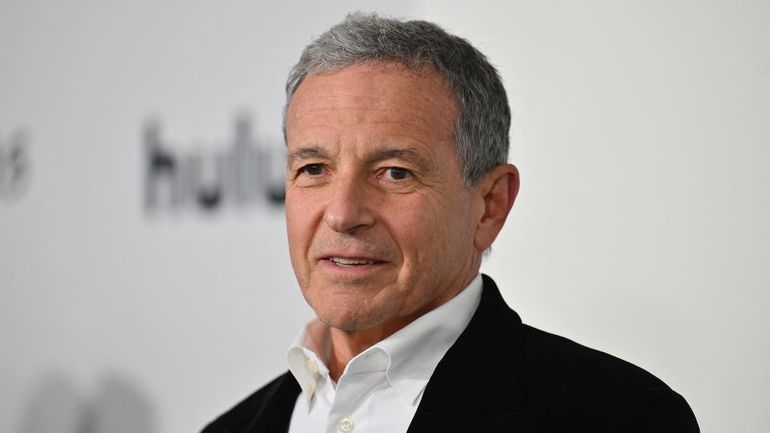
Disney's Triumph Over Activist Shareholders: A Victory for Bob Iger

Discover how Disney emerged victorious in a challenging proxy battle against activist investors vying for board seats. The shareholder vote marked a significant win for CEO Bob Iger, solidifying his legacy within the company.
Disney recently won a tough proxy battle against activist investors who were trying to get seats on the board of directors. This victory was a major win for CEO Bob Iger, solidifying his legacy.
At the annual shareholder meeting, Disney's board won by a significant margin against the nominees put forth by Trian Fund Management and Blackwells Capital.
"We are excited to shift our focus back to our key goals: driving growth and creating value for our shareholders, as well as delivering top-notch experiences for our customers," stated Iger.
After the proxy contest, Trian expressed their disappointment with the results but thanked Disney stakeholders for their support and engagement.
"We are pleased with the positive changes we have made in directing this company towards creating value and practicing good governance," the statement mentioned. "Our attention will be on monitoring the company's progress and supporting its ongoing achievements."
The recent investor battle, which reached a critical point on Wednesday, was largely viewed as a test of confidence in Iger, who has been serving as CEO for over a year in his second term.
Disney's stock has seen a significant increase of almost 50% in the last six months. However, some investors like Trian and Blackwells were hoping for even higher returns and more significant changes within the company. Trian, in particular, wanted to link executive pay to performance, enhance Disney's dominance in the box office, and boost the company's profit margin.
The main challenge arose from Trian, which put forward its founder, 81-year-old corporate raider Nelson Peltz, as a nominee for the board. Jay Rasulo, a former Disney finance chief, was also nominated alongside Peltz.
Peltz had disagreements with Iger on political matters during his campaign. In a recent interview with the Financial Times, Peltz criticized “The Marvels” and “Black Panther” movies for promoting what Republicans often refer to as a “woke” agenda.
In the interview, Peltz questioned the need for movies like “The Marvels” to have an all-female cast. He also questioned why there couldn't be both male and female Marvel characters. Additionally, Peltz wondered why there was a necessity for movies like “Black Panther” to have an all-Black cast.
Disney is still considered one of the most successful media giants globally, but it has faced challenges in some areas recently.
Running a large media conglomerate in the 2020s comes with its own set of issues. Traditional linear TV, which used to be a major source of revenue, is declining rapidly. Streaming services, seen as the future, are also draining finances. In addition, higher interest rates have impacted the company, and audiences are growing tired of Disney's constant stream of Marvel spinoffs and sequels.
Last year in an interview with CNBC, Iger mentioned that the challenges are greater than he had expected.
Peltz and other shareholders are using these challenges as an opportunity to push for change. Trian Partners stated in a regulatory filing that they plan to invest around $25 million in their campaign for board seats.
If the Trian group had won board seats, it could have damaged Iger's reputation as a powerful player in Hollywood. It also would have given the activists a chance to influence or disturb Iger's plans for the company.
However, it was uncertain if Peltz's strategy, which focused on increasing profit and linking executive compensation to performance, would significantly diverge from Iger's existing approach.
A year ago, Iger made the tough decision to lay off 7,000 employees and introduce a restructuring plan to boost Disney's creative teams.
Early indicators show that his strategy is paying off. In February, Disney pleasantly surprised investors by revealing that earnings per share would increase by 20% this year.
Despite successfully warding off Peltz and Trian, for the time being, Iger can now concentrate on advancing his growth strategy until his contract ends in 2026, at which point he has stated he will step down. However, a former Disney executive cautioned that the battle is not yet finished.
In an interview with CNN's Oliver Darcy prior to the vote, the former executive, who preferred to remain anonymous, noted, "The significant attention this issue has garnered indicates a high level of discontent."
—CNN’s Hadas Gold, Samantha Delouya and Oliver Darcy contributed to this report.
Editor's P/S:
The recent proxy battle at Disney highlights the challenges faced by media giants in an evolving industry. While Disney's victory solidifies Iger's position, the opposition from activist investors reflects growing concerns among shareholders about profitability and content strategy. The debate over "woke" content and the future of traditional media adds further complexity to the company's landscape.
Disney's stock performance may have influenced the outcome of the proxy battle, but the underlying issues remain unresolved. Iger's restructuring plan and focus on creative teams may yield positive results, but it remains to be seen if they can address the challenges of declining linear TV revenue and audience fatigue with Marvel spinoffs. The battle may have ended for now, but the pressures on Disney to adapt and innovate will continue to test Iger's leadership and the company's legacy in the entertainment industry.













